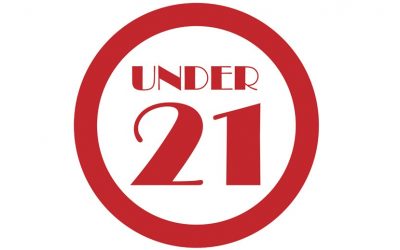
When you apply for a job, your potential employer will want to know about your criminal record, if any. If you have a DUI charge in your past, they could ask about it, and you have to be prepared to answer.
An experienced Los Angeles DUI lawyer can help you navigate the complexities of disclosing your DUI charge during the job application process. They can guide you on how to address inquiries about your criminal history, emphasize your rehabilitation efforts, and present yourself in the best possible light to potential employers. Contact us today to discuss your options.
Do You Have To Disclose a DUI?
If you have a DUI on your record, you may be tempted not to mention it. However, if an application directly asks about your criminal history, you should disclose it. Not doing so is lying, which always looks bad to employers.
Often, an employer will run a background check before hiring you. Your DUI will appear in this check. If you lied, the company will find out, and they will lose trust in you. A recruiter or hiring manager will almost never hire someone that they know lied to them.
Worse, the employer may hire you and then find out about your DUI. If this happens, they will almost certainly terminate the employment contract.
How Do You Talk About Your DUI on a Job Application?
You should expect questions about a DUI conviction at a job interview and know how to prepare for them before you arrive. This will be just another tough question in a string of difficult questions you will face. As with any question asked at an interview, you can plan your answer.
The best way to discuss a DUI conviction is to tell the interviewer that you made a mistake and learned from it. If the conviction stems from a time earlier in your life, you can admit that you were young and foolish at the time but have matured since then. You still bring a lot to the table as a candidate for the job and need to express that your past mistakes do not define who you are as an employee.
The Law Dictionary offers several other tips for discussing a DUI:
- Explain any DUI school or treatment you went through, and emphasize the change in perspective you’ve had.
- Talk about community service or volunteer work you’ve done and how you’ve decided to give back to the community since your DUI.
Most importantly, don’t mention your DUI unless the interviewer brings it up first. If they call you in for an interview, they are obviously interested in you as a candidate. They may not care about the DUI or have already decided it isn’t relevant, so don’t make a big deal out of it. If they never ask you, you don’t have to explain yourself.
Can You Keep a DUI Off Your Record?
Even if you’ve been convicted of a DUI, you can eventually get it expunged. Expunging a DUI means it will be removed from your criminal record (even if it is still on your driving record), and you no longer have to disclose it to employers. A DUI can only be expunged once you have served all penalties and probation, and it is best done with the help of a DUI lawyer.
The costs associated with expunging a DUI from your criminal record can vary depending on several factors. Typically, you will be required to pay a filing fee to initiate the expungement process.
The best solution to explaining a DUI, however, is to keep it off your record in the first place. If you are currently facing DUI charges, remember that a good attorney may be able to get the charge dropped, downgrade it to something less serious than DUI, or even win your case for you. That means you never have to explain it to anybody.
When Can a DUI Conviction Be Expunged from a Record?
You may be eligible for expungement of a DUI under California law if you are convicted of a misdemeanor or a felony and did both of the following:
- You completed all the probation that was required after your conviction.
- You did not serve time in a state prison for this incident, or if you did, you would have served that time in a county jail if available.
Most of the time, a DUI conviction will meet these requirements after you have completed probation. Once you feel you meet this requirement, work with your DUI attorney to get the information expunged from your record so you can take back your life.
You can petition the court to expunge this conviction from your report the day after you serve your probation. The judge will then review your petition and determine if you are eligible. Often, the judge will withdraw a plea of guilty or no contest and then re-enter a plea of not guilty.
Being Found Guilty
In situations where a jury or a bench trial finds you guilty of DUI, the judge will set aside the verdict. Once this is done, the case is officially dismissed.
Doing this will make it easier for you to apply for a job after having a DUI. While it may not be ideal in that there is a period of waiting, it is beneficial to work with a DUI attorney for expungement.
What Happens When You Disclose a DUI?
Different employers look at DUIs differently. It all comes down to the type of industry, the job for which you applied, and the culture of the organization. Some employers will not bat an eye at a DUI. Other employers might not even ask a follow-up question if you are honest and up-front about the DUI conviction.
Others will refuse to hire someone with a DUI on their record. This is legal; it is considered acceptable for them to pass over you because of your criminal history.
Many employers, however, will fall somewhere in between. They may consider the DUI a red flag but still hire you. If you are highly qualified in other ways, they might be willing to overlook the DUI and will probably ask you about it in the interview.
Can an Employer Deny You a Job Because of a DUI?
In California, employers are legally allowed to consider a job applicant’s criminal history, including DUI convictions, when making hiring decisions. However, they must adhere to certain legal requirements and considerations outlined in state and federal laws, such as the Fair Chance Act, also known as Ban the Box law.
This law prohibits employers from asking about an applicant’s criminal history on job applications or during the initial stages of the hiring process. Instead, employers can only inquire about an applicant’s criminal record after determining that the individual meets the basic qualifications for the job.
While employers have the discretion to deny employment based on a DUI conviction, they must demonstrate that the decision is job-related and consistent with business necessity. Additionally, individuals with DUI convictions may have legal rights to challenge discriminatory hiring practices based on their criminal history.
A Statistical Overview of Alcohol Use Based on Age
In a report released by the LA County Department of Public Health in October 2022, findings revealed varying rates of alcohol consumption over the past 30 days across different age groups in Los Angeles County (LAC).
Among 12 to 17-year-olds, the rate stood at 9%, while it escalated to 54% among 18 to 25-year-olds and 55% among individuals over 26. This data underscores a significant rise in alcohol use prevalence with advancing age within the region.
Let Our Team Help You Explain a DUI on Your Job Application
Let us connect you with a pre-screened DUI lawyer in Los Angeles who offers a free consultation. Contact us today, and we will match you with an attorney.






